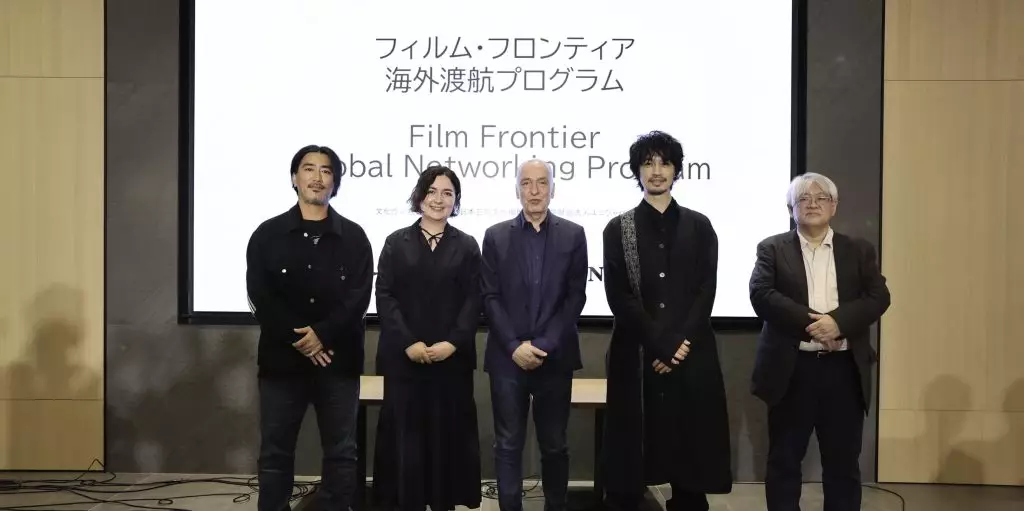In an inspiring move to bolster the future of Japanese cinema, the Agency for Cultural Affairs has launched the Film Frontier Global Networking Program, spotlighted during the Tokyo International Film Festival (TIFF). This initiative marks a significant milestone for emerging filmmakers, aiming to refine their skills, enhance international outreach, and ultimately cultivate a vibrant cinematic landscape in Japan. As the nation seeks to make its mark on the global film stage, this program emphasizes not only skill development but also the invaluable importance of networking in an increasingly interconnected industry.
The Film Frontier Global Networking Program is located at the intersection of ambition and guidance. Designed for Japanese nationals or permanent residents under the age of three feature films’ experience, it offers a tailored environment for directors, producers, and screenwriters specializing in live-action features. The program will unfold over 18 months, running from December to May 2026, focusing on nurturing the four selected filmmakers: Shingo Ota (The End Of The Special Time We Were Allowed), Emma Kawawada (My Small Land), Kohki Hasei (Blanka), and Mai Nakanishi (Swallow).
This structured approach to development underscores a broader initiative aimed at fostering homegrown talent within the Japanese film arena. The potential addition of animated filmmakers in future cohorts highlights the program’s flexibility and commitment to embracing diverse storytelling techniques. Such foresight aligns with evolving industry trends and the increasing demand for innovative animation.
Institutional Commitment toward Creative Communities
Hirohiko Nakahar, an influential figure in Japan’s cultural landscape, echoes the government’s advocacy for supporting its artistic community. His statements about the program reflect a sincere desire to cultivate a nurturing environment for up-and-coming filmmakers. By emphasizing the government’s role in fostering new talent, Nakahar highlights the importance of institutional support in shaping a thriving creative economy.
Film festivals like TIFF play a crucial role in this framework. Shozo Ichiyama, TIFF’s Programming Director, expressed the festival’s heightened focus on fostering new filmmakers, underscoring that the selected projects embody both ambition and realism. This balance is fundamental in guiding young visionaries towards presenting compelling narratives that resonate with global audiences.
Networking is an essential component of a filmmaker’s journey, something Christian Jeune from Cannes illustrated succinctly during discussions. The merit of such initiatives lies in creating comfortable environments where creativity can flourish organically. The Cannes residency program, a long-standing initiative, serves as a model, enabling filmmakers to engage with peers across various festivals globally. Jeune’s insights about providing filmmakers with supportive environments highlight how community interactions can catalyze personal and professional growth.
Filmmaking is not just an art; it is a collaborative process. The environment built within the Film Frontier program offers participants a unique opportunity to share experiences, share insights, and build relationships with their peers and industry veterans. The learning that occurs in such interactions can not only elevate individual projects but also foster a culture of collaboration among local talent.
Concluding Thoughts: A Vision for the Future
The establishment of the Film Frontier Global Networking Program reflects a transformative step forward for Japanese cinema. As Takumi Saitoh asserts, while educational institutions lay a foundational understanding of film, the industry lacks supportive residency programs that extend beyond academic instruction. The infusion of such programs is critical in evolving the creative landscape of Japan’s film industry.
By investing in its filmmakers today, Japan is not just preserving its rich cinematic heritage but is also paving the way for a new generation of storytellers. The creative ecosystems built by these initiatives will be instrumental in defining the evolution of Japanese film on the global stage. The exciting journey that lies ahead for the first cohort and future participants promises to enrich and diversify the tapestry of global cinema.

Leave a Reply